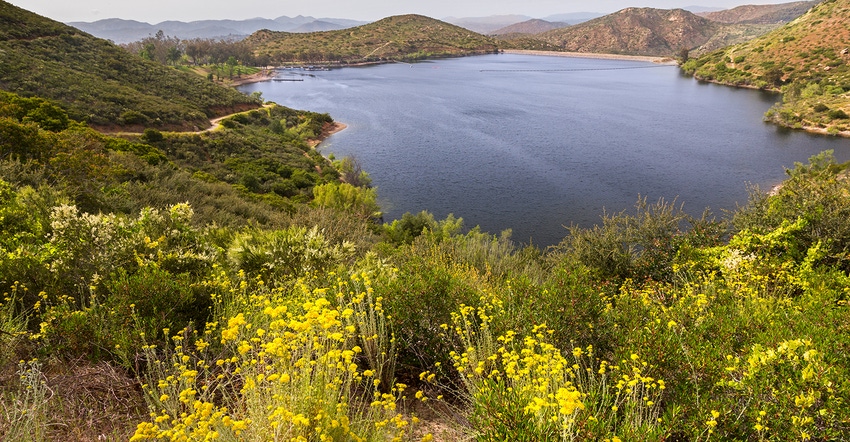May 25, 2018

The Chinese Year of the Dog — 2018 — may well long be remembered as the “Year of Water Infrastructure” in Washington, D.C. The Trump administration in February rolled out its long-awaited infrastructure plan and intends to scale back environmental requirements, shorten federal timelines and limit judicial reviews to speed up the approval process for infrastructure projects. There are a multitude of bills already being considered by Congress on infrastructure, tackling important issues like federal environmental process and permit streamlining, hydropower, pipeline permitting and water infrastructure.
On May 9, the Senate Environment and Public Works Committee heard testimony on the recently introduced America’s Water Infrastructure Act of 2018. Pat Riley of Montana represented the Family Farm Alliance at this committee hearing and provided perspective on the AWIA provisions important to Western irrigators and water managers.
The AWIA, also known as the Water Resource Development Act, is a biennial piece of legislation that is the main vehicle authorizing water projects to be studied, planned and developed by the U.S. Army Corps of Engineers. It is also the legislative vehicle for implementing policy changes with respect to the U.S. Army Corps of Engineers’ water resource projects and programs. As such, this legislation is very important to the rural communities of the West.
Key focus areas
This bill includes specific provisions that will benefit the Upper Missouri River watershed, where Riley resides, as well as rural communities and agricultural water users in other parts of the West. Some of the key provisions of AWIA 2018 include modifications to Fontenelle Reservoir in Wyoming, flood protection on the Snake River, reauthorization of the national levee safety program, control of invasive species and evaluation of federal agency capabilities and capacity, among others.
AWIA 2018 also includes several sections that will give local interests a stronger role in flood management, and provide a balanced, fair means of addressing the challenges faced by rural communities with limited funds and human resources.
With water infrastructure in the spotlight in this Congress, the Family Farm Alliance has testified several times before Senate and House committee hearings over this past year. We believe any new federal water infrastructure investments or financing tools should be made available for improvements in water conveyance, surface water storage, aquifer storage and recovery, groundwater recharge, wastewater and stormwater management, water reuse, desalination, and water use efficiency projects. Extreme hydrologic events — marked by drought on one end and floods on the other — will require everyone in the West to adopt a new paradigm, one that truly promotes wise management of this limited and valuable resource. This new paradigm will also mean additional investment in technology, conservation, and new water storage and management infrastructure to deal with the uncertainties that lie before us.
AWIA 2018, developed by the Senate Environment and Public Works Committee, has bipartisan support and shows a strong commitment to existing and future water infrastructure. Importantly, it recognizes the unique challenges faced by rural communities and takes strong strides to address those challenges.
Keppen is executive director of the Family Farm Alliance.
About the Author(s)
You May Also Like




